US Passes Dire Milestone Of 100,000 COVID-19 Deaths
Unthinkable just a few months ago, the United States on Wednesday surpassed the grim milestone of 100,000 coronavirus deaths, as the pandemic tightened its grip on Latin America.
With the European Union unveiling a massive recovery plan to step up its emergence from the crisis, the US figure was a sobering reminder of the devastation being wreaked around the globe by a virus that only emerged late last year.
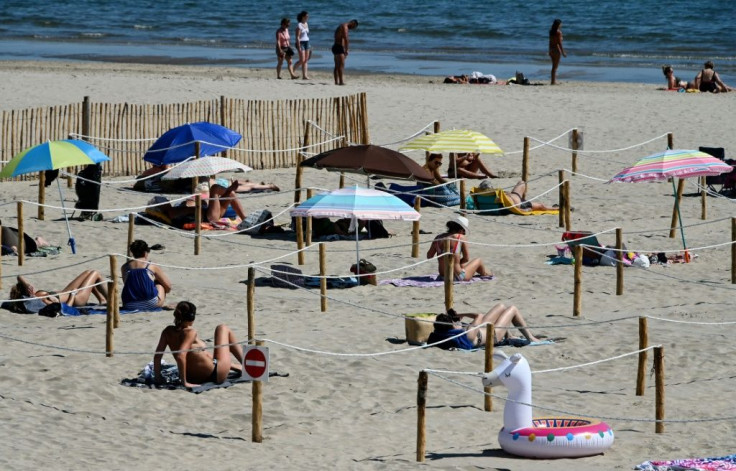
Confirmed US deaths stood at 100,396 late Wednesday, with nearly 1.7 million infections, according to the tally compiled by Johns Hopkins University.
The 24-hour toll shot back up after three days of sharp declines, to 1,401.
Nevertheless, most US states moved toward reopening restaurants and businesses, cheered on by President Donald Trump, who is eager to see the economic pain of the crisis mitigated as he seeks re-election.
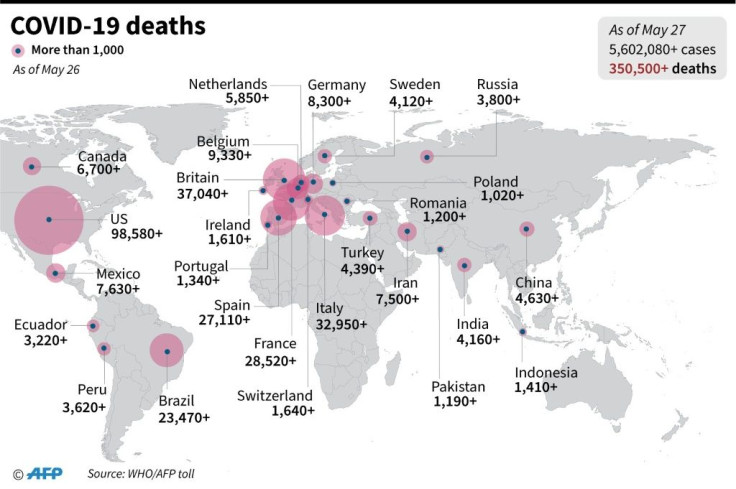
The US capital Washington will ease its lockdown from Friday.
Grim news came from across the Americas, as Brazil saw its death toll pass 25,000.
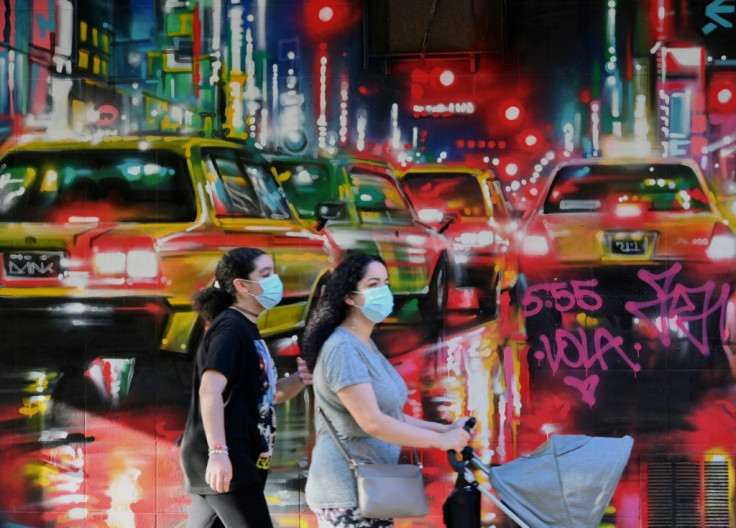
President Jair Bolsonaro is facing mounting criticism over his response to the health crisis.
The far-right leader has downplayed the seriousness of the pandemic and railed against stay-at-home measures, arguing the economic fallout risks causing more damage than the virus itself.
"The so-called second wave is coming: recession. It will affect everyone, without exception," he wrote on Facebook.
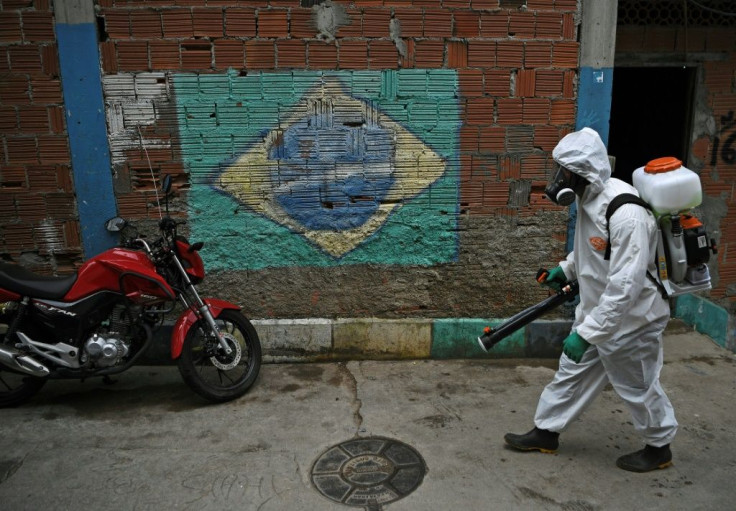
Peru meanwhile registered a record 6,154 new cases in a 24-hour period.
"Difficult days, difficult weeks are coming because people are going to get sick," said Pilar Mazzetti, who is helping to coordinate Peru's coronavirus response.
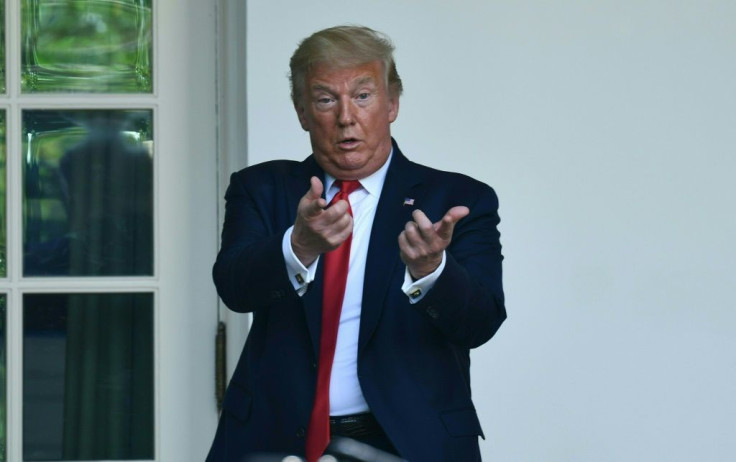
In Europe, business have slowly started reopening as outbreaks on the continent slow, but Italy and Spain lack the firepower of richer European nations to rebuild their economies.
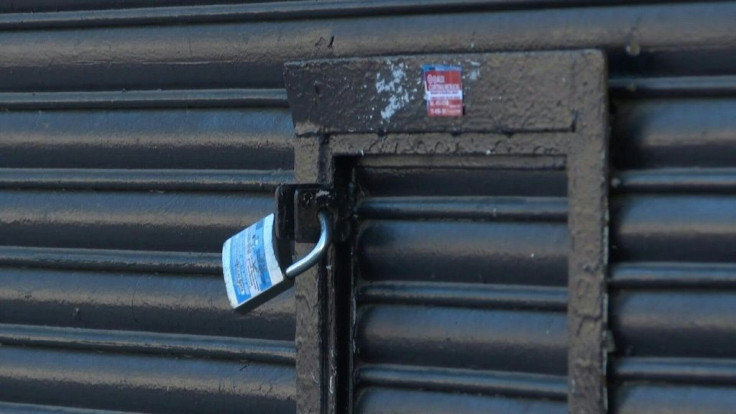
The EU unveiled a historic, 750-billion-euro ($825 billion) recovery plan to get the continent back on its feet.
It follows other unprecedented emergency measures introduced around the world to rescue economies shattered by the virus, which has claimed more than 354,000 lives globally as infections top 5.6 million.
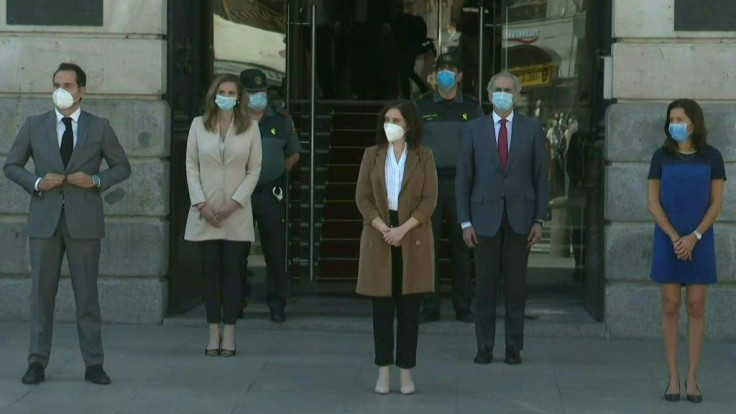
"This is Europe's moment," EU Commission chief Ursula Von der Leyen said, urging solidarity.
"We either all go it alone, leaving countries, regions and people behind... or we walk that road together."
The proposed package is expected to kick off tough negotiations, as backers try to win the support of some northern EU states that oppose paying out grants to nations already under mountains of debt.
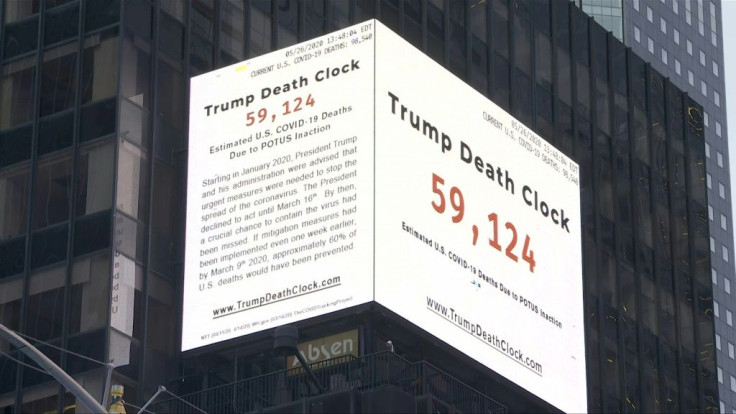
The proposal comes as the continent -- which has lost at least 173,000 people to COVID-19 -- grapples with the human tragedy and economic destruction.
Spain on Wednesday began 10 days of official mourning for the more than 27,000 people who died there, with all flags on public buildings at half-staff.
While desperate to kickstart their economies, most governments in Europe are also trying to move cautiously, afraid of a second wave of infections.
In Cyprus, the badly-hit tourism sector inched back to life as beaches opened again -- but with sunbeds and beach umbrellas spaced apart to avoid crowding.
"We're here, we're having a good time... we're taking our safety measures," said Georgios, a young gym trainer.
Elsewhere in Europe, Poland scrapped a rule calling for face masks in public, while Switzerland said it would drop its virus restrictions by June 6.
In Moscow, shops will reopen and people will be allowed out for walks from June 1 as the Russian capital announced the easing of its lockdown.
"Today we can already talk about the next steps out of the crisis situation," Moscow Mayor Sergei Sobyanin said.
The United States remains the hardest-hit nation, with President Donald Trump weathering heavy criticism for his handling of the crisis -- and for not wearing a mask in public despite his administration's recommendations.
Trump's principal preoccupation has been for a quick turnaround of the badly battered US economy, and he has pressured local and state leaders to ease lockdowns.
But his top infectious diseases expert Anthony Fauci warned against "leapfrogging" guidelines in order to open more quickly.
"That's really tempting fate and asking for trouble," Fauci told CNN.
Trump courted controversy this month when he said he was taking the anti-malaria drug hydroxychloroquine as a preventative measure against coronavirus.
France said Wednesday it was banning the drug as a COVID-19 treatment, following a move by the World Health Organization to end clinical trials amid fears over dangerous side effects.
And the International Labour Organization warned of the global fallout among young workers who have lost jobs because of the pandemic, a cohort it dubbed the "lockdown generation".
"As we recover from the pandemic, a lot of young people are simply going to be left behind. Big numbers," said ILO chief Guy Ryder.
© Copyright AFP 2024. All rights reserved.











